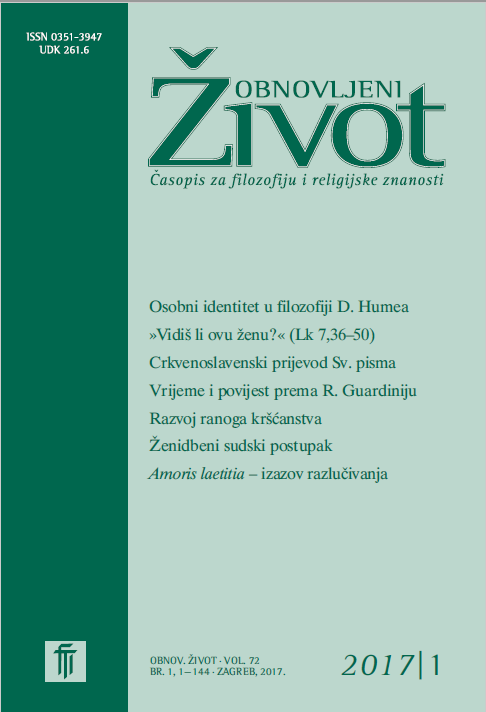Saints Cyril and Methodius and the Translation of the Holy Scripture into Old Church Slavonic
Keywords:
translation of the Holy Scripture, Saints Cyril and Methodius, Old Church Slavonic, Glagolithic alphabet, Cyrillic alphabet, „sacredness“ of the translation *Abstract
Translations come about fundamentally and primarily to enable one who does not understand the language in which the text is written to understand the original text. Biblical texts are not simply texts written in the Old Hebrew (Aramaic) or Ancient Greek languages, but texts containing the Word of God — God’s revelation of Himself and of His will that all men be saved. Thus, a translation of the Holy Scripture is not only a translation from one language (ancient and not understandable) to another, but a transmission of Divine Revelation. The translation of Saints Cyril and Methodius achieves both. The article examines existing circumstances and the emergence of the cyrilomethodic translation of the Holy Scripture into Old Church Slavonic, by firstly addressing the reasons — proclamation of the Gospel to the Slavs — but also the difficulties encountered in their translation activities — non–existence of a script and the resistance to liturgical use of the Old Slavonic language. The response of the Slavic apostles to the non–existence of a Slavonic script was to devise the Glagolithic and Cyrillic alphabets, and the right to use them in the liturgy was attained through the translation of not only the Holy Bible but also of numerous liturgical texts. Thus, these accomplishments of the saintly brothers had an effect initially, not only on the development of Christianity among Slavic peoples, but in later centuries often became the reason for holding missionary fervour in abeyance as the „sacredness“ of the translation was to be preserved.
Downloads
Published
Issue
Section
License
Jednom prihvaćeni članak obvezuje autora da ga ne smije objaviti drugdje bez dozvole uredništva, a i tada samo uz bilješku da je objavljen prvi put u Obnovljenom životu. Uredništvo će obavijestiti autora o prihvaćanju ili neprihvaćanju članka za objavljivanje.
Članci objavljeni u časopisu se, uz prikladno navođenje izvora, smiju besplatno koristiti u obrazovne i druge nekomercijalne svrhe.


